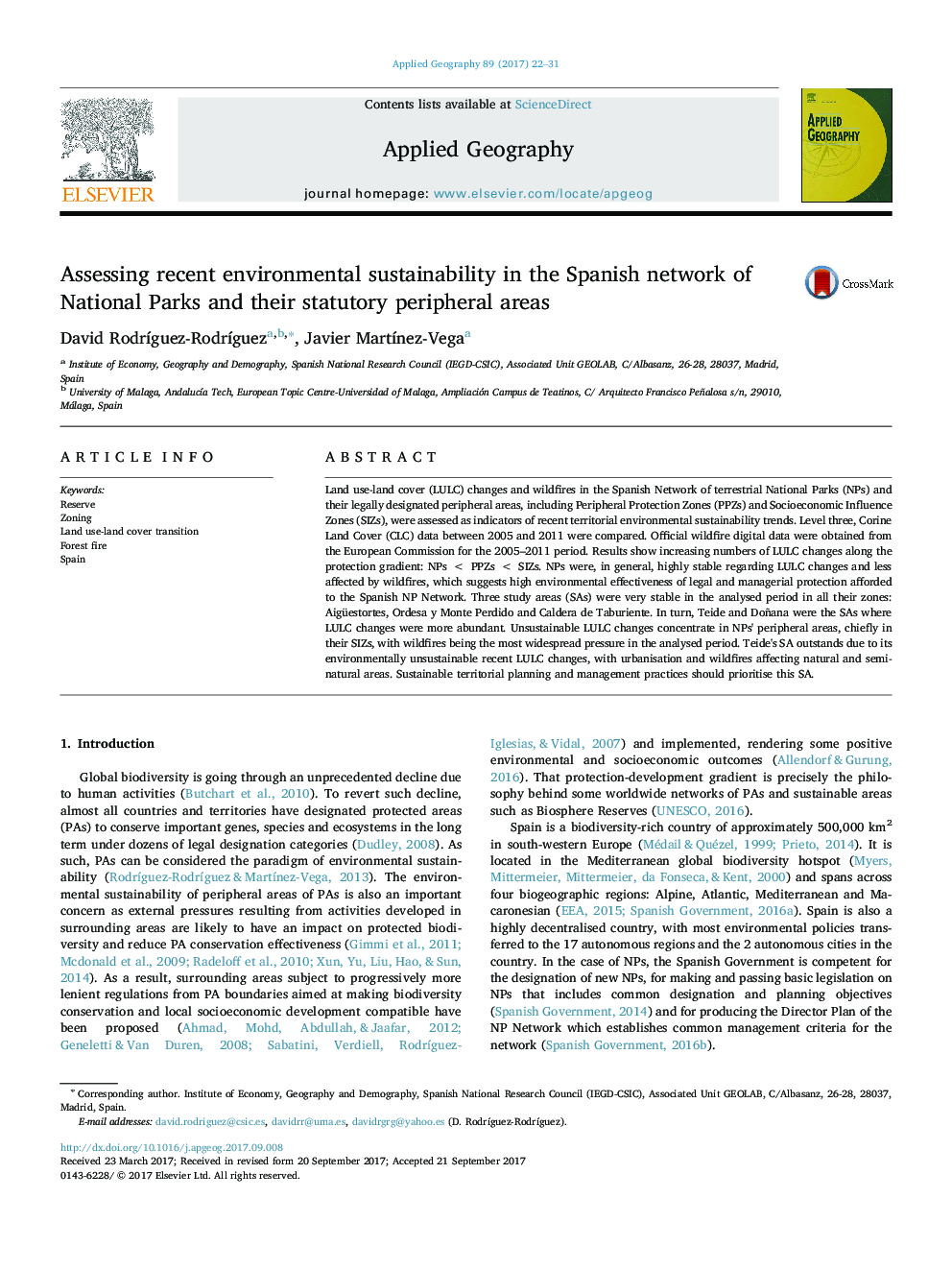| Article ID | Journal | Published Year | Pages | File Type |
|---|---|---|---|---|
| 4758992 | Applied Geography | 2017 | 10 Pages |
Abstract
Land use-land cover (LULC) changes and wildfires in the Spanish Network of terrestrial National Parks (NPs) and their legally designated peripheral areas, including Peripheral Protection Zones (PPZs) and Socioeconomic Influence Zones (SIZs), were assessed as indicators of recent territorial environmental sustainability trends. Level three, Corine Land Cover (CLC) data between 2005 and 2011 were compared. Official wildfire digital data were obtained from the European Commission for the 2005-2011 period. Results show increasing numbers of LULC changes along the protection gradient: NPs < PPZs < SIZs. NPs were, in general, highly stable regarding LULC changes and less affected by wildfires, which suggests high environmental effectiveness of legal and managerial protection afforded to the Spanish NP Network. Three study areas (SAs) were very stable in the analysed period in all their zones: Aigüestortes, Ordesa y Monte Perdido and Caldera de Taburiente. In turn, Teide and Doñana were the SAs where LULC changes were more abundant. Unsustainable LULC changes concentrate in NPs' peripheral areas, chiefly in their SIZs, with wildfires being the most widespread pressure in the analysed period. Teide's SA outstands due to its environmentally unsustainable recent LULC changes, with urbanisation and wildfires affecting natural and semi-natural areas. Sustainable territorial planning and management practices should prioritise this SA.
Keywords
Related Topics
Life Sciences
Agricultural and Biological Sciences
Forestry
Authors
David RodrÃguez-RodrÃguez, Javier MartÃnez-Vega,
